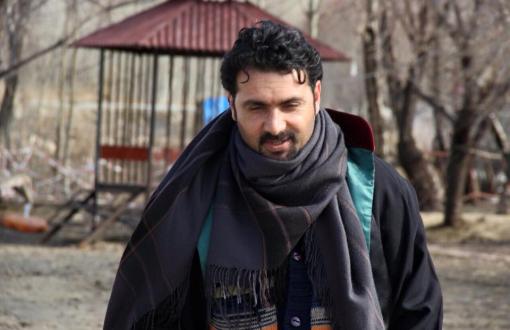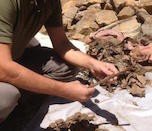Advocate Applies to Ministry to Find Brother’s Missing Body

Turan Ece, an advocate whose PKK guerrilla brother was killed by the Turkish Armed Forces in 1994, officially applied to Interior Ministry to return his brother’s grave and confiscated personal belongings.
The aforementioned belonging were confiscated in the eastern province of Van in 1994.
“During the summer of 1994, every other day we were taken by gendarmerie soldiers,” Ece wrote in the letter. “We were ordered to identify my brother by looking at the deceased PKK guerrillas who were killed during the clashes. But we couldn’t because none of them matched. After a period of two months, we detected a body that was almost torn to pieces.”
The request letter also urged authorities to give the whereabouts of his brother’s body killed on 20 March 1994 in the highlands of the southeaster Dersim.
What had happened?
22 guerrillas, according to official sources, and 27 according to Kurdistan Workers’ Party (PKK) lost their lives in the armed conflict on October 12, 1998 between Turkish Armed Forces (TSK) and the PKK in Van province Çatak district’s Kayaboğazı village Görentaş highland. The families of the guerrillas’ did not receive their funerals.
The families, upon finding out in July 2011 about a mass grave in Çatak, applied to the Human Rights Association (İHD) Van Branch thinking their own children could be there. The Arduç family went to İHD Van branch on October 4, 2011, and the other families on August 11, 2011.
İHD attorneys applied to the Çatak Chief Public Prosecution and requested, "the mass grave to be opened with the help of the public, a DNA test to be conducted, and the bones thought to belong to their relatives to be delivered to them.”
Çatak Chief Public Prosecution ruled “lack of legal grounds for prosecution” on August 24, 2011, stating the requests to be “within civil court jurisdiction.” Erciş High Criminal Court affirmed the decision.
The incident was carried to the ECHR. The court evaluated the families’ application and inquired in their declaration dated March 20, 2013 whether the case closed due to “lack of legal grounds for prosecution” had been carried to civil courts.
Attorney Ece applied to the Çatak Peace Court on April 26, 2013 following the ECHR’s statement and launched a case. The first hearing took place on May 14, 2014. On June 25, that year, an excavation was made on the field, authorities reached some bones and relics. While the samples were sent to the Forensics Institute, a reply is being expected. (AS/BM)
* Click here to read the article in Turkish.
bianet submits shadow report to UN Human Rights Committee

Imprisoned lawyer exposes use of disciplinary investigations to pressure political prisoners

Tap water ‘smells of bleach’ in Muğla prison

Censorship on a letter from prison describing hunger

Prisoner on hunger strike: 'I am alone without sunlight'






